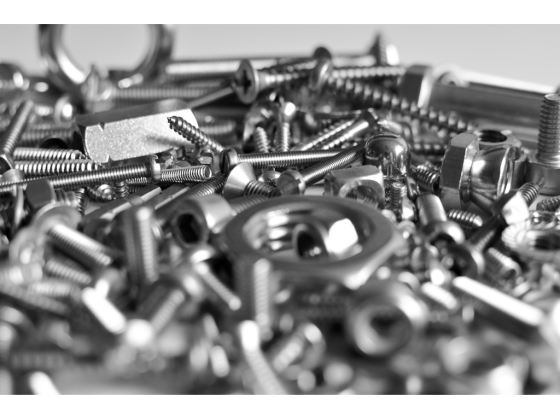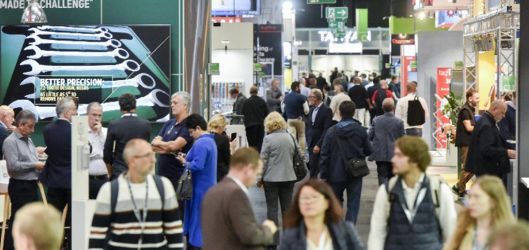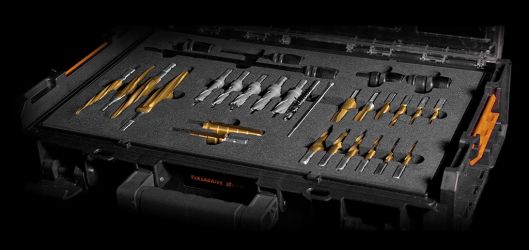
With the pandemic stretching companies in most industries, wholesalers, importers and stockists have been busier than ever, proving their value in the exceptionally stretched supply chain. Apex Stainless Fasteners Managing Director David Vahter tells Torque Magazine how Apex is handling these unprecedented times, how its customers are coping and provides his well-travelled take on the quirks of the UK fastener market...
How has business been in the first half of 2021? Are things back to 2019 levels?
Our 2020 numbers were not far off 2019, and 2021 will be significantly up on 2019 for us. Maybe that’s the case with our competitors too. It could be that distributors turn to stockists because they don’t want to import themselves in these turbulent times, but I am a little surprised to be so busy. I am almost inclined to say that it seems like we are taking market share in the UK, which would be fantastic, but in these unusual times it’s hard to confirm.
There’s a lot of publicity about price rises. Are these largely through material prices or supply chain issues?
There are four main factors. You have the increase in raw material prices: Nickel was down at $12,000 dollars a tonne in 2020 at one point. It’s now edging $18,000 a tonne [Editor’s note – at time of interview]. That increases the prices of products like fasteners.
Then you have the high container prices: Before the pandemic they were down at around a $1,000‐$2,000 per container, in summer 2021 you are looking at $8,000‐$10,000 per container. It’s a massive increase. Luckily for us, we trade stainless steel fasteners instead of steel fasteners, meaning that freight prices have slightly less of an impact.
What is quite worrying now is the lack of manufacturers and the longer lead times. On top of that you have limited stock availability. At some point the increases gets pushed to customers, it’s hard to get around that.
Are customers accepting of it?
I think we have been pragmatic and careful with our price increases – you have to think about your customer relationships long‐term. We have seen some big price rises elsewhere in the market. Pricing correctly is a difficult balancing act – when your stock is turning over so fast it’s even harder. With a slower turnover of stock you can have smooth little price increases gradually over a long period of time.
You’ve mentioned it already, but availability is a big issue in the industry...
Lead times are longer than we’ve seen before. Without doubt, stock availability will continue to be an issue in the coming six to nine months. Our stock availability isn’t where we would like it to be, but we have done well under the circumstances and a lot of that is thanks to my predecessor, Paul Lower, who made sure we held a lot of stock.
The steel mills were shut for a while and are now struggling to keep up, right?
I think the main factors is that all the companies stopped. It was like pressing a big red button. Then there was this big surge, which was expected to slow by February. But things have picked up and picked up... It’s almost like we’re seeing a balloon inflating. How long can it take to make up that lost demand?
We may have seen the peak, but there are a lot of construction contracts awarded that will need fasteners when they are executed. Are we currently seeing high sales figures because we are tidying up customer’s backlogs and filling gaps in their stocks? Or is there a real demand out there? It’s a tricky one. I have a feeling May was the peak and now it will be busy but will flatten out.
Does the anti-dumping investigation concern Apex?
The investigation doesn’t affect stainless steel fasteners, but I think this is the last thing the industry needs. The timing couldn’t have been worse. You are already working in a market with capacity issues and bad stock availability. Put this on top then it is a big concern for the industry, but I am sure those affected will be able to navigate around it.
You’ve hinted that you are super busy right now, is that just keeping up with the demand...
Yeah, we have seen record months and when you are that busy you have to be careful how much strain is on your operations and team. We are doing extremely well to keep up with the current business volumes, but we are not used to these volumes month after month. Making deliveries as fast as previously has been difficult. I think there is an understanding among our customers that the whole supply chain is struggling. Everyone is. It really is ‘all hands to the pump’.
You’ve worked across different markets in the fastener business. How does the UK compare with other territories you’ve experienced?
I worked in the UK around a decade ago, and the UK fastener business was then, and still is, very focused on service. Quick turnaround is key and companies will try to go the extra mile to ensure supply. In that way it is very similar to the Norwegian market, where you have to be quick – perhaps even quicker than here.
I’ve also worked in Denmark’s fastener industry, where it is price sensitive because you are squeezed between Germany, UK and Sweden – three big industrial countries. It’s three hours to drive from Hamburg to the middle of the manufacturing centre of Denmark, so you have a completely different competitive set up in terms of pricing.
If you think of Sweden, the decision making process is typically longer– if you want to do something you make sure it is right, and that can be frustrating for other nationalities. That may be reflective of the big automotive industry there and the big volumes.
People tend to think of Danes and Swedes as two peas in a pod however that is not my experience. In terms of making decisions there is an old Danish joke about the Øresund Bridge between Denmark and Sweden. When Sweden was still deciding whether to build their side of the bridge, Denmark had already started building their side.
Whatever the country, you have to be there locally to understand the differences. Local is key to get anywhere in any country, in my opinion.
Covid-19 has obviously been hugely disruptive, and one of the initial industry worries was how smaller distributors/merchants would be able to cope. How have Apex’s customers fared, generally speaking?
We expected some smaller customers without big capital behind them to struggle and in Q2 last year we saw that some customers weren’t paying us as quickly as usual. However, by end of year that had returned to normal and we haven’t seen any big bankruptcies in our customers. We still have to see what happens when the government takes away its supportive measures like furlough, but I think it is looking quite positive. We may see the current mergers and acquisition activities will pick up further as the UK industry is fairly fragmented.
In terms of the environment, you’ve previously spoken about reducing carbon footprint at Apex. Can you tell us a bit about that?
Sustainability is on the agenda for lots of companies and for Apex as well. We have managed to cut our printouts 50% in 2021. During the autumn we will review our packaging materials. Although I would like to point out that we are already quite efficient in in handling scrap out of packaging operations. We are also currently looking into swapping over more to green energy. Sustainability is definitely becoming more and more important for the business.
How about things like automation or expansion in the warehouse?
We are currently looking at how to optimise and make the warehouse more efficient. Automation isn’t always right for every business, but there is a potential for us to use more technology in our operations.
What are your expectations for the rest of 2021?
I think it will be busy and that there will be shortages across the board. I think that stockists will play a bigger part than ever in minimising disruption. It’s time like this that you see the true value in a stockist. Apex has invested right back into stock and at times like these you realise how important that is.
With shortages and the lack of manufacturing capacity I think we still have the perfect storm still ahead, but we have done extraordinarily well and I’m very proud of the company and our employees. We are in a good position.
If you look at all the factors: Port issues, Brexit, demand increase, the Suez blockage, new Covid variants... not to mention shortage of HGV drivers... I have never experienced a time like this, nothing close to it. When I speak to other managers, they all say the same. Ultimately, it is good we see such high demand in business, but it is tough. I can really sympathise with customers, colleagues and other stockists, end users and everyone. It is a perfect storm and we are trying to ride it out together.
This article was first published in Torque Magazine. Don’t get the mag? You can apply for a free subscription online today. Or take a look at back issues in the Torque Magazine archive.



